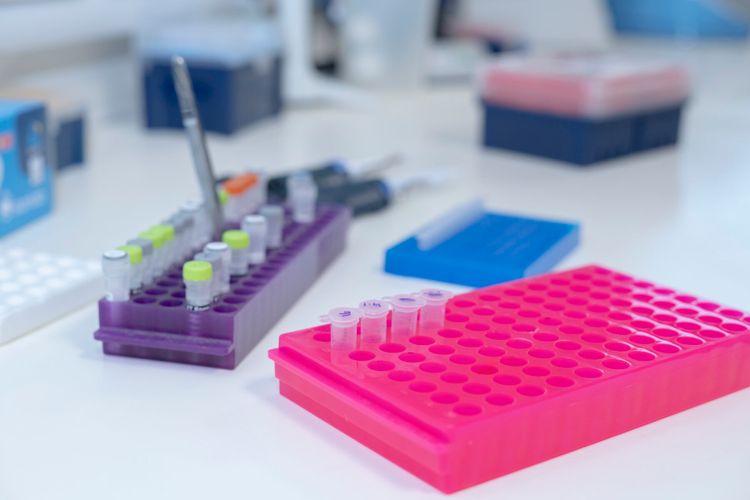At-home saliva test could help diagnose prostate cancer sooner

There is a fresh method of testing saliva that might be able to detect males that are more likely to develop prostate cancer. This could lead to identifying more instances of the illness in the early stages, which would increase the likelihood of successful treatment.
The scientists who conducted the BARCODE 1 research, which received our financial support, believe that their examination could play a crucial role in combating prostate cancer.
Even though prostate cancer is responsible for around 12,000 deaths of men in the UK each year, it is not included in the national screening program due to the limitations of the only existing test, the PSA blood test, which is not completely reliable.
Rather than analyzing the quantity of PSA present in the bloodstream, the recent detection method utilizes a saliva sample to categorize individuals based on minor genetic variations that are linked to prostate cancer. The findings of the investigation propose that this technique is more effective. Individuals classified in the top-risk category by the novel examination have a greater chance of developing prostate cancer than those with elevated PSA levels.
The latest examination had fewer instances of falsely detecting prostate cancer compared to the PSA test and was more successful at identifying aggressive forms of cancer.
According to Ros Eeles, who works as a consultant at the Royal Marsden NHS Foundation Trust and is a professor at the Institute of Cancer Research, the new test could potentially make a significant impact in the fight against prostate cancer. The study, which was led by both institutions, found that a straightforward and inexpensive test that uses saliva to identify individuals with a genetic predisposition to the disease is a useful method for detecting prostate cancer at an early stage.
At the yearly gathering of the American Society of Clinical Oncology in Chicago, Eeles is revealing the findings of BARCODE 1. She connects her research to a historical background of investigating the hereditary indicators of prostate cancer.
After many years of researching genetic markers related to prostate cancer, our study confirms that it is successful in identifying men prone to aggressive cancers who require more screenings. Meanwhile, men with lower risk can be saved from unwarranted treatments.
PSA To Polygenic Risk: Scoring Shift
The research involved the use of saliva samples to determine the polygenic risk scores (PRSs) for prostate cancer among 6,000 European males. These participants were selected through their general practitioners when they were between the ages of 55 to 69. This age range is known to have a higher risk of developing prostate cancer.
Their PRSs depended on 130 genetic modifications - a majority of them being inherited - which have been connected to prostate cancer through studies on the genetic makeup of numerous men.
BARCODE 1 selected the group of men who had a high risk score that fell within the top 10%. These individuals were then asked to undergo additional screening. Upon completing an MRI and prostate biopsy, it was discovered that 187 of these men (which equates to 40% of the total group) had prostate cancer. This is a stark comparison to the 25% of men who are found to have prostate cancer through the use of PSA tests. In addition to this, 147 of the men who tested positive for prostate cancer (which equates to 78% of those who were diagnosed via saliva testing) had a normal PSA reading. Generally, this would indicate that these men would not require any further screening.
The scientists also examined how the prostate cancers discovered by their new diagnostic tool behaved (which can be determined by their abnormality level, measured by grade). PSA tests can identify many individuals who have cancers that grow at a slow pace, resulting in unnecessary MRIs, invasive biopsies, and treatments for men. Hence, the new saliva test recognizes a greater percentage of aggressive cancers - a quick-growing type that can spread easily - than the PSA test. In BARCODE 1, 187 cancers were detected, with 55% of them being aggressive, compared to a 36% identification rate in a recent study by a PSA test.
The PRS examination is a better option than an MRI for males with a genetic risk percentile in the top 10%. It provides more precise results.
Our evidence and implementation director, Naser Turabi, provided an interpretation of the research results.
At present, there is no dependable way of identifying aggressive prostate cancer. However, this investigation moves us closer towards detecting the illness sooner in those requiring medical attention according to the expert. The fact that gene testing could, potentially, provide a more specific screening based on the possibility of developing prostate cancer is a positive development. Further exploration is necessary to verify whether this technique could save lives from this disease. This would allow it to be more broadly adopted in improving the identification of the illness.
Ever since the commencement of BARCODE 1, a group of experts from different countries joined hands to hunt down extra hereditary variations that might trigger prostrate cancer among Asian and African males. The aim of the ICR group is to introduce a saliva test specially for these populations so that polygenic risk scoring can aid everybody. The team is putting the newly-devised test through trials while also weighing it against other ways of screening under the wing of the continuous TRANSFORM trial.











































